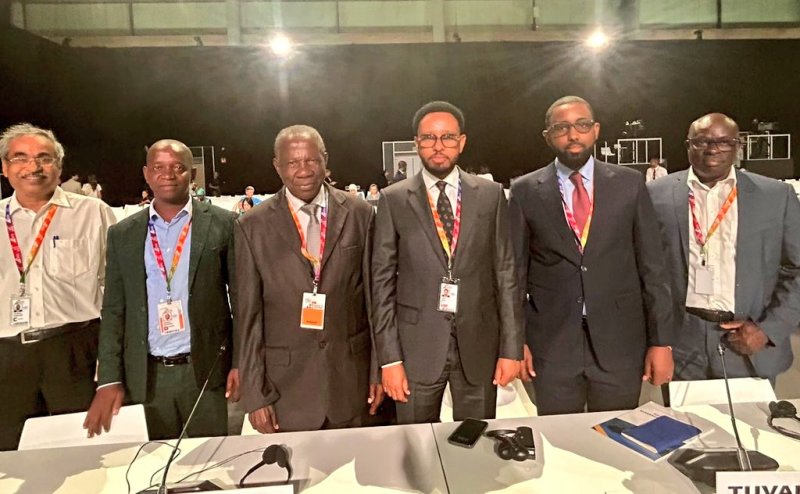URA says Uganda has been losing Shs.4 trillion annually due to lack of EFRIS
Musinguzi who was appearing before the Committee of Commissions, Statutory Authorities and State Enterprises (COSASE), explained that the new system will ensure that all VAT taxpayers pay their fair share of tax.

John Musinguzi, the Commissioner General of the Uganda Revenue Authority (URA), has defended the enforcement of the Electronic Fiscal Receipting and Invoicing System (EFRIS), saying Uganda has been losing around Shs4Trn annually in uncollected Value Added Tax.
Musinguzi who was appearing before the Committee of Commissions, Statutory Authorities and State Enterprises (COSASE), explained that the new system will ensure that all VAT taxpayers pay their fair share of tax.
Saying this, URA had been summoned to respond to queries raised in the December 2023 Auditor General’s report.
“We estimate to be losing taxes in the range of Shs4Trn uncollected because of lack of capacity to monitor the level of transaction in businesses. We have been having Value Added Tax for close to 30 years, but we only have 32,000 taxpayers on the VAT register. They are expected to voluntarily declare that I am above the threshold of Shs150M per annum, so, several businesses say we are below. And we cannot know this until we have such a technology to tell us,” said Musinguzi.
Musinguzi’s remarks were in response to a question posed by Medard Sseggona (Busiro East) who tasked the Commissioner General with why the tax body caused paralysis in the business community with the EFRIS to the extent of exposing President Museveni to a standoff with the traders at Kololo, a standoff he said caused embarrassment in Uganda.
ALSO READ: Critics of EFRIS are traders who think VAT is part of their revenue, says URA
Sseggona said, “I know you have been grappling with the issue of the Electronic Fiscal Receipting and Invoicing System (EFRIS) and you know how far it has stretched us including attracting a major standoff between URA and our major collection points, the traders.”
“Would you like to use the platform of Parliament to tell us what EFRIS stands for why it has become controversial lately and why such a matter couldn’t be resolved without escalating into the strike and involving the Head of State who had to get into a standoff with the traders publicly that embarrassed the nation? Is it a work method, is it a misconception or is it sheer hate that people don’t want to pay taxes?” added Ssegona.
The Commissioner General attributed the standoff between traders and URA, to the tough penalties provided for in the law of enforcing EFRIS, which he said were high, but these penalties have since been waived and now URA has embarked on education and sensitization of traders across the country, adding that EFRIS is already being used by manufacturers, corporate companies and after the campaign with traders.
“The enforcement penalties were quite high, so irrespective of what you are trying to sell without the E-receipt, the penalty was Shs6M. So I think, the toughness in the penalty and the toughness in the enforcement campaign caused this. However, following the meetings and guidance, we stopped issuing penalties and we went back to engagements and more sensitization. And this is what we have been doing for the last month, we have stopped enforcement operations, we have educated and we have even waived the penalties that were issued to the new people who hadn’t easily understood EFRIS,” said Musinguzi.
According to URA, the standoff between the Government and traders isn’t unique to Uganda, as the same opposition to EFRIS was witnessed in Tanzania and Rwanda and Musinguzi went on to reveal that after the traders adopt EFRIS, the system will be extended to all VAT taxpayers in Uganda.
“We have also checked the trends of all countries that have adopted this technology, especially within our environment East African Community. Tanzania has been using the same technology for more than 19 years, Rwanda has been using the same system for more than 10 years, and even Kenya added Musinguzi.
Musinguzi further emphasized that at the start, there is always resistance, closure of businesses, and standoffs, but with clear explanations and engaging more people, later they understand that the system is good for them.







